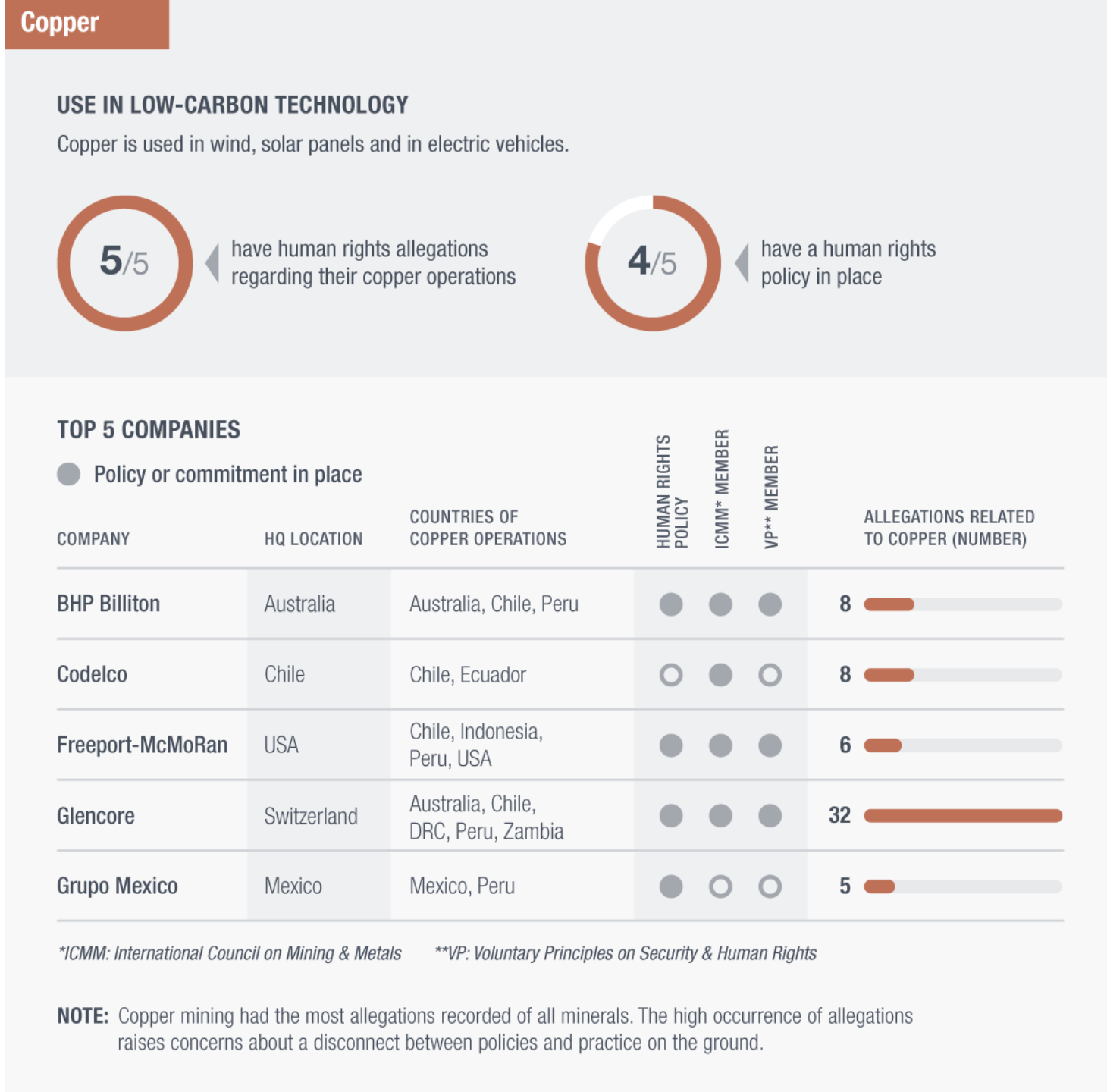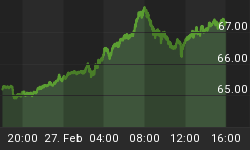Most of the world’s top companies mining for lithium, cobalt and other minerals used in the making of electric vehicles’ (EVs) batteries, solar panels and other green technologies have been linked to alleged human rights abuses since 2010, a new report claims.
According to New York-based watchdog Business & Human Rights Resource Centre (BHRRC), 87% (20/23) of the top five lithium, copper, cobalt, manganese, nickel and zinc – six minerals essential to the renewable energy industry – have faced allegations of abuse, including land rights infringements, corruption, violence or death over the past 10 years.
Hoping to prevent further infringements, BHRRC has launched an online tool to track human rights claims against miners digging for minerals that fuel the renewables sector.
The initiative comes as the global economy steps up efforts to switch to low-carbon technologies, which could push demand for minerals to jump by as much as 900% by 2050, according to World Bank estimates.
“As the renewable energy sector finds its feet, it is crucial that it introduces rigorous human rights protections throughout its supply chains,” says BHRRC senior researcher Eniko Horvath.
The watchdog says it has found evidence of companies including Albemarle, SQM, Livent Corporation, Tianqi Lithium and Jiangxi Ganfeng Lithium, being accused of rights abuse between 2010 and 2019. From them, only one of the world’s top companies, Livent Corporation, has related policy available.
By launching the Transition Minerals tracker, BHRRC wants to allow investors, businesses and civil society groups to find claims against miners, which range from harming access to water to dubious business practices, corruption, violence and deaths. Related: Africa’s First Unicorn IPO Is Coming To The NYSE
The tool, however, doesn’t include original documents nor full transcriptions of court cases against companies. Instead, it just links to either media reports on an alleged abuses or to research by other NGOs working in the field, such as Amnesty International.

(Click to enlarge)
The goal, the group says, is to improve human rights practices of companies producing the minerals vital to the renewable energy and EVs sectors.
“The urgent transition to a low-carbon economy must be fair as well as fast,” Horvath notes. “But without strong human rights checks the renewable energy sector risks being linked to labour and environmental abuses in their supply chains in countries such as Chile, Zambia, and the Democratic Republic of the Congo (DRC).”

(Click to enlarge)
The watchdog found no correlation between the existence of a company’s human rights policy and whether it prevented it from receiving allegations of abuses, which suggests policies are either insufficient or are not adequately enforced in the companies’ supply chains.
For example, the top five lithium companies have all had human rights abuse allegations made against them, yet only one company — Livent Corporation — had a publicly available policy on human rights, BHRRC found.
BHRRC’s report notes that in many of the countries where the top six transition minerals are mined, weak regulation, poor enforcement and lack of rule of law have meant many companies have escaped scrutiny.

(Click to enlarge)
Investors and governments, Horvath argues, can help by strengthening regulations, demanding higher human rights standards and ensuring that financial flows are not directed where they inadvertently fuel exploitation.
By Mining.com
















